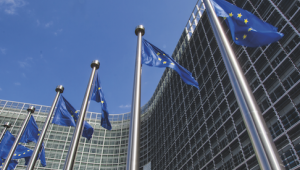The EU spent around €1bn on aid to the North African country between 2007 and 2013, 60% of which was channelled through the Egyptian treasury using the aid mechanism known as budget support. This placed considerable reliance on the country’s public finance management, the European Court of Auditors explained in its report EU Cooperation with Egypt in the field of governance.
However, the European Commission and the EU’s diplomatic corps, the European External Action Service, failed to address ‘major shortcomings’ in the country’s PFM which prevented aid from being spent effectively both before and after the 2011 revolution, the ECA said.
Important areas of the Egyptian budget were not transparent, with both military expenditure and presidential expenses not being declared. The Egyptian authorities also hold at least £4.4bn outside the state budget in ‘special funds’. According to the ECA report, the exact amount held, its purpose and how it is actually used are all unknown.
Egypt’s audit function is ineffective, it added. The Central Auditing Organisation, Egypt’s supreme audit body, reported directly to ousted president Mubarak and a lack of reform and transparency since the Arab Spring means it remains a serious impediment to improving public finance management.
The ECA also found that commission had done little to address Egypt’s serious corruption problem. It funded a ‘very relevant’ €2.5m anti-corruption project, but this had been ‘slow to start’ and ‘not sufficiently closely monitored’, the report said.
EU interventions in support of human rights and democracy had also been beset by problems, many of which the ECA linked to a lack of commitment from the Egyptian authorities. The EU’s main human rights programme was slow to start and only 22% of its funds had been spent over its first 30 months of existence.
The ECA criticised the commission and EEAS for failing to use the financial and political leverage at their disposal to counteract Egyptian officials’ lack of willingness to implement the programme.
Karel Pinxten, the ECA member responsible for the report, said: ‘The “softly softly” approach has not worked, and the time has come for a more focused approach which will produce meaningful results and guarantee better value for European taxpayers’ money.’
In particular, the ECA called on the commission to accelerate improvements in PFM and anti-corruption efforts by placing more emphasis on them in the action plan that formed the basis of its work with Egyptian authorities. A special sub-committee should be set up to specifically address the issues, it added.
In their response, the commission and EEAS said they regretted the ‘negative nature’ of some of the report, and believed the overall effect of the aid had been positive.
‘The outcome of the EU political dialogue and support is the result of difficult negotiations with the Egyptian side, the impact of EU engagement and assistance on governance might therefore be considered as relatively limited in comparison with other countries.
‘However, it can also be considered as a very positive achievement, bearing in mind the local context and the effects of the January 2011 uprising.’












